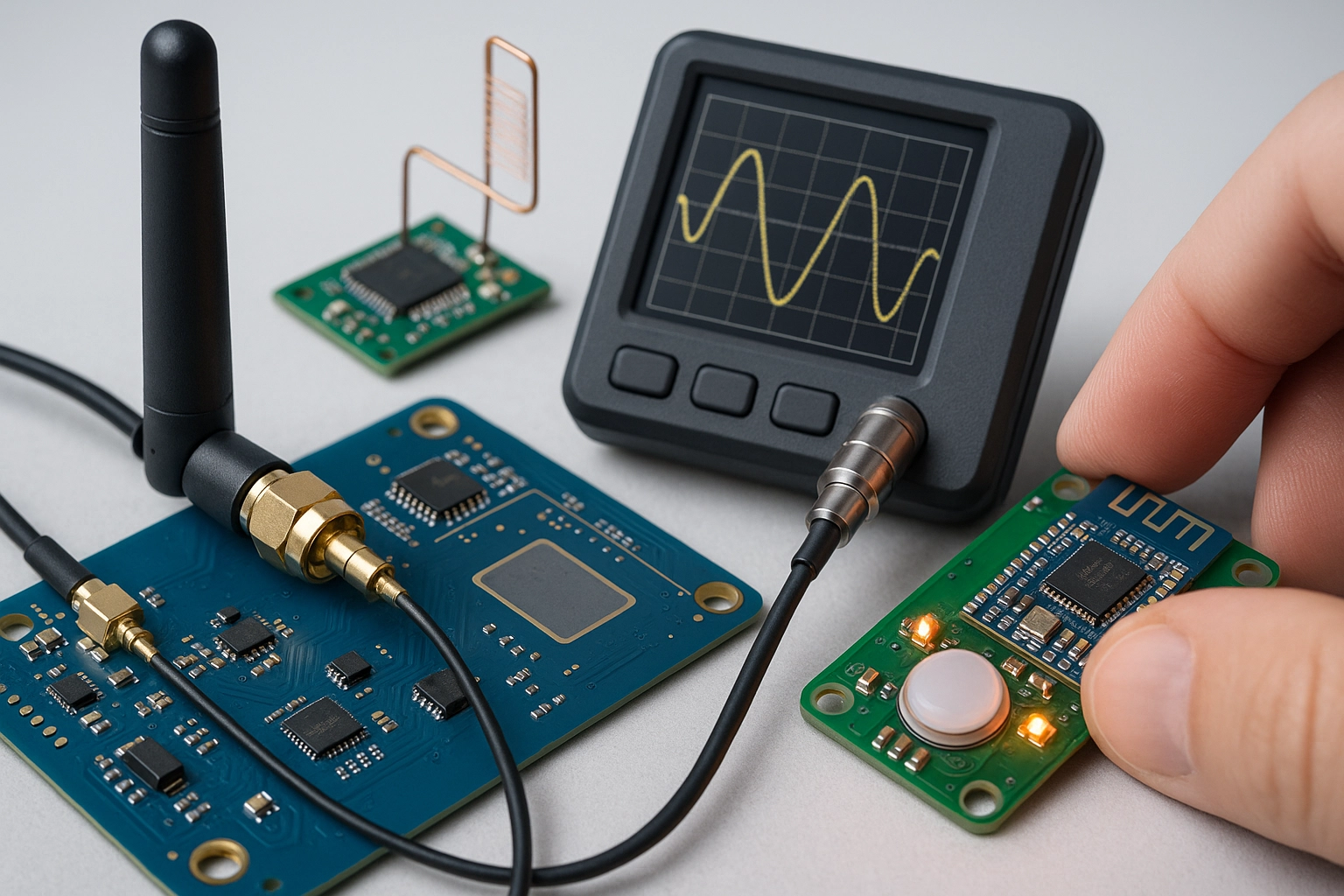ANSI C63 10 Wireless Device Compliance Test for Vehicles
The ANSI C63.10 standard provides a comprehensive framework to ensure that wireless devices used in vehicles meet specific performance requirements, safety standards, and compatibility with other components of the vehicle's electronics system. This test is crucial for manufacturers aiming to comply with regulatory standards and ensure seamless integration within automotive environments.
Wireless connectivity has become an integral part of modern automobiles, offering enhanced infotainment systems, navigation tools, and advanced driver-assistance features. However, the high density of wireless signals in vehicles can lead to interference issues, reduced signal strength, or even failure of critical devices under certain conditions. ANSI C63.10 aims to address these challenges by establishing a standardized testing procedure that guarantees device performance across various environmental factors.
One of the primary goals of this standard is to evaluate how wireless devices perform in the presence of electromagnetic interference (EMI) generated by other electronic components within the vehicle. This includes assessing the impact of EMI on signal quality, reliability, and overall system functionality. The test protocols outlined in ANSI C63.10 are designed to simulate real-world driving conditions, thereby providing manufacturers with accurate insights into potential issues before products reach the market.
The standard covers a wide range of wireless technologies commonly used in vehicles, such as Bluetooth, Wi-Fi, and cellular networks. By adhering to these stringent requirements during development stages, automakers can minimize risks associated with subpar connectivity solutions that could compromise user experience or safety features. Additionally, compliance with ANSI C63.10 helps ensure interoperability between different brands of equipment operating within the same vehicle, fostering a more cohesive ecosystem for all passengers and drivers.
Compliance testing according to ANSI C63.10 involves several key steps aimed at evaluating various aspects of wireless device performance:
- Signal Strength Measurement: This step assesses the strength of signals transmitted by the device under test (DUT) in relation to background noise levels present within the vehicle.
- Emission Testing: Ensures that emissions from the DUT do not exceed permissible limits set forth by relevant regulatory bodies.
- Interference Mitigation Analysis: Evaluates whether the device can operate effectively amidst other electronic devices emitting electromagnetic radiation in close proximity.
- Compatibility Evaluation: Determines how well the DUT interacts with existing systems within the vehicle, including infotainment centers and onboard diagnostics tools.
By completing these evaluations, laboratories equipped to perform ANSI C63.10 tests provide valuable feedback that enables continuous improvement of wireless devices used in automotive applications. This not only enhances user satisfaction but also contributes significantly towards safer roads by reducing the likelihood of malfunctions caused by poor signal quality or interference.
In summary, ANSI C63.10 offers a robust approach to ensuring reliable and compatible wireless connectivity within vehicles. Through rigorous testing procedures focused on signal strength, emission levels, interference resistance, and compatibility with other systems, this standard plays an essential role in maintaining high standards across the entire automotive industry.
Benefits
Compliance with ANSI C63.10 offers numerous advantages for manufacturers looking to produce robust wireless devices for vehicles:
- Enhanced User Experience: Ensures smooth operation of infotainment systems, GPS services, and other connected features.
- Better Safety Performance: Reduces the risk of malfunctions that could lead to accidents or breakdowns on the road.
- Increased Interoperability: Promotes seamless interaction between various wireless devices operating within a single vehicle environment.
- Regulatory Compliance: Helps businesses meet necessary requirements imposed by government agencies and international standards organizations.
- Improved Brand Reputation: Demonstrates commitment to quality and reliability, which can enhance customer trust and loyalty.
- Competitive Advantage: Provides a benchmark for excellence in the competitive automotive market, positioning companies as industry leaders.
In addition to these benefits, adhering to ANSI C63.10 also fosters innovation by encouraging ongoing improvements in wireless technology within vehicles. By setting strict guidelines early on, this standard drives manufacturers towards developing more advanced and efficient solutions that align perfectly with future trends in automotive connectivity.
Eurolab Advantages
As a leading provider of ANSI C63.10 testing services, Eurolab offers unparalleled expertise and comprehensive support to ensure your wireless devices meet the highest standards:
- Accurate and Reliable Results: Our team of experienced engineers utilizes state-of-the-art equipment tailored specifically for conducting ANSI C63.10 tests.
- Comprehensive Support Throughout the Process: From initial consultation to final report generation, we offer guidance every step of the way to help you navigate through the complexities involved in this type of testing.
- Fast Turnaround Times: With efficient workflows and dedicated personnel assigned exclusively to your project, you can expect quick delivery times without compromising on quality.
- Comprehensive Reporting: Detailed reports are provided along with actionable insights that highlight areas where improvements may be needed. These documents serve as valuable resources for both internal stakeholders and external clients.
- Industry Knowledge: Our professionals stay updated with the latest industry developments, ensuring they are well-versed in all relevant standards and best practices.
- Cost Efficiency: By offering competitive pricing plans alongside our high-quality services, we strive to make ANSI C63.10 testing accessible to businesses of all sizes.
At Eurolab, we understand that compliance with ANSI C63.10 is not just about meeting regulatory requirements; it's also about delivering exceptional value through precision and reliability. Let us assist you in achieving these goals while enhancing the quality and performance of your wireless devices for automotive applications.





